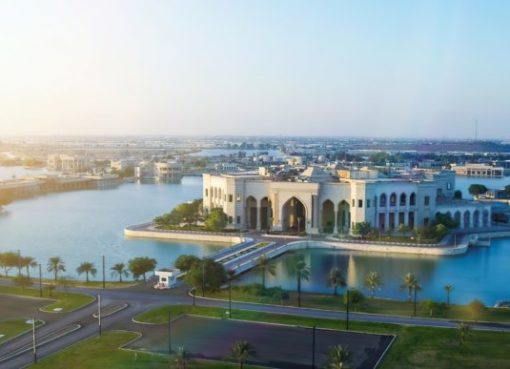Protests in Iraq are not new. At several times during the past few years, the Iraqi people have taken to the streets against corruption, unemployment, and poor public services. Every time, the government promises reforms, and as soon as the protests end, these promises are forgotten. On October 1, thousands of Iraqi people began protesting and demanding better living conditions. They filled the streets of Baghdad and many other cities—especially Shia ones—including Najaf, Nasiriya, and Diwaniya.
What’s different this time
Unlike before, these spontaneous protests took the government by surprise and, more importantly, they were not led by political or religious leaders like past protests. However, these differences may have led the security forces to believe they could act with impunity to put down the protests with force since the demonstrators lacked a central organization or the protection of a strong leader. When security forces used water cannons, tear gas, and live ammunition against the protesters and unidentified snipers targeted them as well, hundreds were killed and several thousand injured. Meanwhile, Iraqi Prime Minister Adel Abdul-Mahdi in a televised speech promised to put an end to corruption in two weeks and respond to the protesters’ “rightful demands and…to every legitimate request.”
Unfortunately, the Abdul-Mahdi government failed to take responsibility and bring justice to those who died in the demonstrations. The report investigating the deaths issued by a government-formed committee did not address the most serious abuses committed during the protests, including identifying the snipers who were responsible for the majority of the bloodshed. The unresponsiveness of the government caused more frustration and led people to take to the streets again.
The protests erupted anew on October 25. People of all ages and from all walks of life have joined in; Iraqis are leaving ethno-sectarian backgrounds behind and uniting as one nation. In the last two days, students have left classes en masse and joined the demonstrations in Baghdad and elsewhere.
The scale of their demands increased to include regime change, not just superficial reforms. They also turned their rage toward Iraq’s political parties and Iranian-backed militias who have powerful positions in the government and parliament. Iraqis are now calling for a new, representative system that does away with the sectarian or ethnic quota (muhassassa) system. Their voices can be heard chanting, “the people want the downfall of the regime,” the same slogan used in the Arab Spring more than eight years ago. Iraq, which did not experience the Arab Spring, might be witnessing its own spring along with Lebanon, which is experiencing its largest protests in decades.
The demonstrations in Iraq have reached the point where it will be very hard for the government to dampen the calls for change. Despite the violent repression by the security forces, the demonstrators have continued protesting and their number has gotten larger every day. The government is now paralyzed because any action it takes against the protesters could lead the country into further chaos and could even result in a civil war.
Muqtada al-Sadr, the influential and powerful cleric who has the largest number of seats in the parliament has called on Abdul-Mahdi to resign and wants early elections to take place soon under the supervision of the United Nations. Abdul-Mahdi refused to agree to this, and so al-Sadr has stated that he will work with his political rival al-Fatah head Hadi Al-Amiri to withdraw confidence from the government. Al-Sadr also suspended his bloc’s participation in the parliament until it makes fundamental reform such as changing the Electoral Commission and election laws and amending the constitution.
One striking feature about the situation in Iraq is that for the first time since 2003, Iraqis are rejecting Iranian-backed Islamist parties. On October 29, al-Sadr joined the anti-government protesters in Najaf. The protestors greeted him with the chant: “Muqtada, keep your hands off Iraq, the people do not want you.” This reaction compelled him to leave as soon as he could. In Karbala, the protesters headed to the Iranian Consulate where they took the Iranian flag down and raised the Iraqi flag instead and also tore down a poster of Iran’s Supreme Leader Ayatollah Ali Khamenei. Protesters in other cities burned down Iranian-backed political parties’ offices.
Looking to the future
Iraqis, who have been struggling with a mounting economic and political crisis for years, believe these protests are their only chance to bring about real change, and they will not retreat, especially after the deadly response they were met with and the causalities since the start of the protests.
The resignation of Abdul-Mahdi, who has been in office for one year, will not necessarily be the solution because it is possible for his government to recreate the same corrupt system in a new cabinet. To stop perpetuating the cycle that has led to this tipping point, there must be total change: the government, the parliament, the constitution, and the electoral law all need to be modified.
However, how is such systemic change possible with different political parties negotiating with each other and jockeying for influence? Considering the parties’ internal interests and external connections, they will support the survival of Abdul-Mahdi and resist any real reforms. Any changes to the electoral process could weaken existing political parties, especially Iranian-backed ones.
Abdul-Mahdi announced his resignation and Iraqi President Barham Salih confirmed this in his speech on October 31. President Salih did hold out a piece of good news: a new election law has already been written by his office. If Iraq can seize this opportunity to implement real reforms, the protestors may one day enjoy the political system they envision and deserve.
(*) Rana Abdulhadi is a former intern with the Atlantic Council and the office of Mark Warner and is a freelance interpreter and translator.
Source: Atlantic Council, October 31. 2019








Comment here